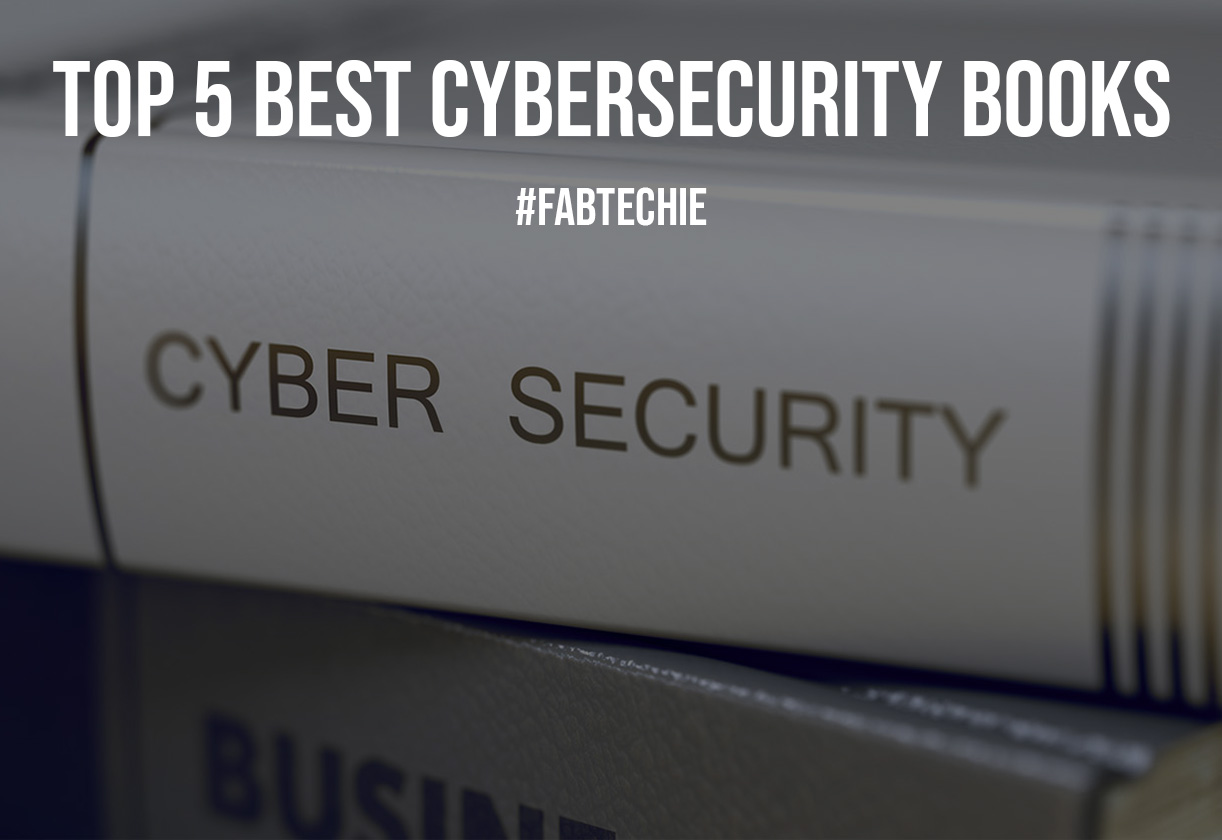We live in a fast-evolving world where it is hard to keep abreast of high-tech gadgetry, digital progress, and IT development. Cyber security became a separate essential data-protecting industry with the popularization and broad application of computer systems in social, industrial, military, economic, scientific, and other fields.
Unfortunately, cyber threats have become frequent, insidious, and malware. In order to keep up with the times, we offer a review of the best cybersecurity books.

But at first, let’s dig deeper into the cybersecurity issue.
The essence of cyber security
Cyber security uses technologies, processes, and monitoring with networks, programs, data, and systems protective aim. As a rule, it helps prevent Data Breaches, Identity Theft, and Cyberattacks that target unauthorized networks, systems, and technologies exploration.
Some people mistakenly believe that they are not prone to cyber-attacks. It is not valid. Every internet user can become a victim of hackers, and the outcome may be deplorable. To avoid and prevent any threats, you may start reading books to learn cybersecurity because forewarned is forearmed.
Also Read: Data Security Tips to Protect Your New Website from Hackers
Practical Malware Analysis by Michael Sikorski and Andrew Honig
The book is intended for those willing to be aware of the latest malware. As it seems that malware awaits you everywhere in the digital world, this book will guide you to debug, perform malware analysis, data decoding, disassemble malicious software, and other hacking techniques.
Analysts use all the tools, types of analysis, and techniques. Michael Sikorski is a practical malware analysis author, so he described vital issues from a professional perspective.
Despite the need for basic programming skills, all the hacker’s tricks such as anti-debugging, anti-virtual-machine techniques, anti-disassembly, and ways to avoid them are described in an understandable manner.
Hackers often use malicious software to exploit vulnerabilities of systems in their favor. With this book, you will get to know how to maintain a secure virtual environment, detect, analyze, and hack malware, provide penetration testing and prevent further ones.
Social Engineering: The Science of Human Hacking by Christopher Hadnagy
In this book, human hacking author Cristopher Hadnagy gives an overview of techniques used in social engineering in action. Then, to simplify the understanding of each one, he provides real examples.
The issue of social engineering is based on psychological manipulations aimed at revealing secure data by malicious hackers. The author describes their methods to access sensitive information without system cracking, just fooling security personnel by staying undetected.
In the book, you may find explanations of issues that influence decision-making factors that make you act in the hands of cybercriminals. For example, even our emotions can contribute to our ‘readiness’ to reveal our network security secrets.
The Art of Invisibility by Kevin Mitnick
This cyber security book was written by the most elusive and most famous hacker at the end of the last century. Now he is a security consultant who shares his experience in the book. In addition, the author takes up subjects of gadget use and their tracking, password security, Wi-Fi security, and the scope of personal data stored.
In the pages of his book, the famous hacker teaches you step-by-step how to be ‘invisible’ and avoid tracking, keep your passwords safe, protect private data, smartly use Wi-Fi, and other anonymity tricks.
After reading the book, you will be aware of basic security methods and tactics. You will learn possible results of the ‘art of invisibility’ neglecting. Moreover, it will help you stop your paranoia of being tracked and prevent you and your family from any data leakage.
Hacking: The Art Of Exploitation by Jon Erickson
The book’s author started hacking computer systems when he was only five years old. Now he transfers his knowledge and skills to other security professionals.
There are two editions of the book in 2003 and 2008. It depicts a review of programming and hacking techniques. It is worth admitting that you won’t find unclear technical terminology; everything is written for easy reading.
In his book, the author pays attention to computer and network security. C programming and shell scripts introduction is added in the second edition. Encryption of wireless traffic, attack accelerations, and various hacking techniques are clearly depicted from a hacker’s perspective.
Cybersecurity Is Everybody’s Business: Solve the Security Puzzle for Your Small Business and Home by Scott Schober and Craig Schober
Since the previous book by Scott Schober was focused on his own experience of being hacked, this cybersecurity book is dedicated to small businesses and everyday life cybersecurity threats. In addition, it is easy to read the book because no technical language is used here.
In the book, you will read how to prevent breaches, phishing attacks, identity theft, and tracking. The authors are convinced that it is obligatory for everyone’s daily life, including those dealing with business, to know cyber security basics.
Also Read: 5 Measures Businesses Can Apply Against Malware Attacks
Conclusion
It is up to you which of the best cyber security books you will start reading, but it is worth doing since maybe Big Brother is watching you. So, find a ‘book shield’ to protect yourself.

